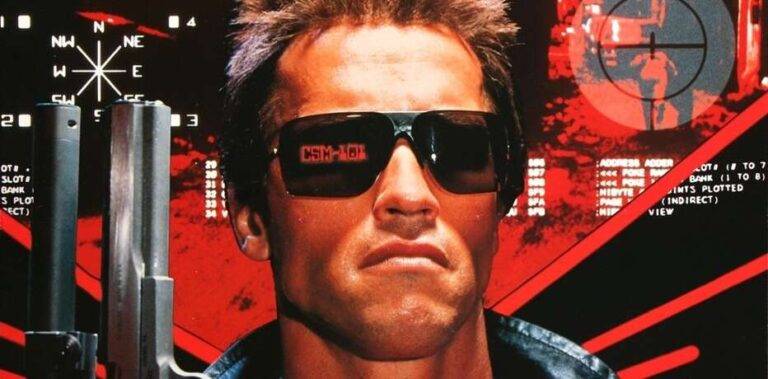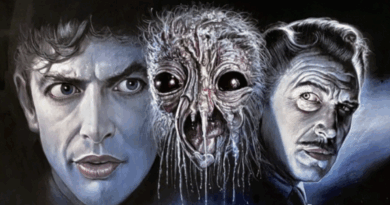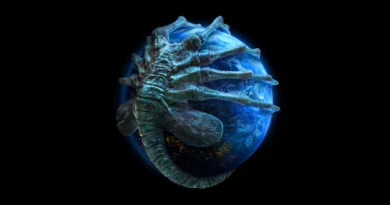
‘The Terminator’ at 40: James Cameron’s Sci-Fi Classic Still Has It
It seems strange to say it, but somehow ‘The Terminator’ is now forty years old. James Cameron’s science fiction action movie about murderous cyborgs from the future first hit theatres on 26 October 1984. In the years since, the movie has become an icon of both sci-fi and ’80s cinema.
In the year 2029, humanity is at war with an artificial intelligence called Skynet, which commands an army of war machines. Hoping to turn their war in their favor, Skynet sends a cyborg assassin, known as a Terminator, back to the 1980s to kill Sarah Connor, the mother of an important human resistance leader. To try and stop this happening, the resistance send one of their own fighters, Kyle Reese, back to protect Sarah.
The movie is an excellent slice of ’80s filmmaking brilliance, which is no surprise considering it was written and directed by James Cameron, one of the best directors the decade produced. He wasn’t much of a name at the time, with a single directing credit on ‘Piranha II: The Spawning’. In different hands, the movie might have become just another low-budget sci-fi, instead, it became a classic, leading to a franchise which continues to this day. This isn’t necessarily a good thing. While there have been some gems, like ‘Terminator II: Judgement Day’, most of the sequels have failed to come close to the quality of the original, and even damaged its legacy in some way (I’m thinking ‘Terminator: Dark Fate’).
While Cameron dealt with the work behind the camera, the figures in front of the lens were equally important, and the film owes a lot to the perfect casting of Arnold Schwarzenegger in the title role of the unstoppable killing machine. Cameron’s first choice for the role was ‘Piranha II’ collaborator Lance Henriksen, who was going to play a more “ordinary” looking version of the T-800, a concept that was used in the 1992 sequel, with Robert Patrick playing the slim liquid-metal T-000. In the end, he was cast in the role of Detective Vukovich, one of the cops killed during the Terminator’s attack on a police station.
In practical terms, a bodybuilder with massive shoulders, square jaw, and thick Austrian accent might not seem like the obvious choice for a cyborg meant to infiltrate ’80s Los Angeles, but he turned out to be born for the role. Schwarzenegger is impressive just to look at, and he has the weight and power you’d expect from a steel robot. He’s dispassionate and emotionless, menacing in his expressionless delivery of the classic line “I’ll be back”, returning minutes later ramming a car through the doors of the police station.
It’s strange that throughout his career, Schwarzenegger has only played two major villains (the second being Mr. Freeze). In future entries in the franchise, he’s always played a reprogrammed version of the Terminator, sent to help the heroes, and often leaning into the comedy side of such a character. There’s something unique in his performance here, as the AI assassin that refuses to quit, no matter how much damage it takes, and it remains one of his most brilliant roles.
Praise also has to go to Michael Biehn and Linda Hamilton in their respective roles as Kyle Reese and Sarah Connor. Biehn plays the role of a soldier from the future perfectly, detached from the technology he’s used to, with outdated weapons and no support, desperately trying to stop a machine that never gives up. Hamilton’s character has more room for growth, going from someone who’s completely overwhelmed with the situation she’s in, to a determined fighter, embracing her future role, and delivering the final blow to the Terminator by crushing it in a hydraulic press.
Sometimes, it can be hard to separate a movie from the baggage that surrounds it, especially when that’s a legacy that’s been built up over forty years. Looking at it in its own right, ‘The Terminator’ is an excellent piece of sci-fi. It’s dark and real, mostly taking place in the dim streets of Los Angeles. In many ways it’s very ’80s, but the few scenes that are set in the future are equally powerful, and nothing in the franchise has come close to the image of a human skull being crushed under the steel foot of a red-eyed Terminator.
Even the basic premise of time travel is handled well, mostly because it treats it as a simple device to get the plot moving, rather than a central point on which everything hinges. The fact that Kyle Reese becomes a father before he’s even born could be seen as a problem if the movie dwelt on it too much, but it’s smart enough to just keep going and not get involved in the complicated mechanics of multiple timelines and the like, making it as believable as any time travel in movies ever has been.
The movie’s other central plot point, of AI taking over the world in the future, should make the movie more relevant today, as we deal with smarter AI and robots entering our homes. Indeed, ‘The Terminator’ is often cited as a cautionary tale against giving computers too much intelligence, and whether we might be building the tools for our own destruction.
Regardless of the big debates of our own time, ‘the Terminator’ is still an example of the very best cinema to come out of the 1980s. It’s made on a low budget but doesn’t look or feel like it. Crafted by filmmakers and professionals with a real creative vision and the talent to realize it onscreen. The story centers around a unique idea, and the script is tight and well-paced, complemented by great performances, with memorable quotes and action scenes. It’s a common thing to say, but it’s true, ‘The Terminator’ really is a classic.



